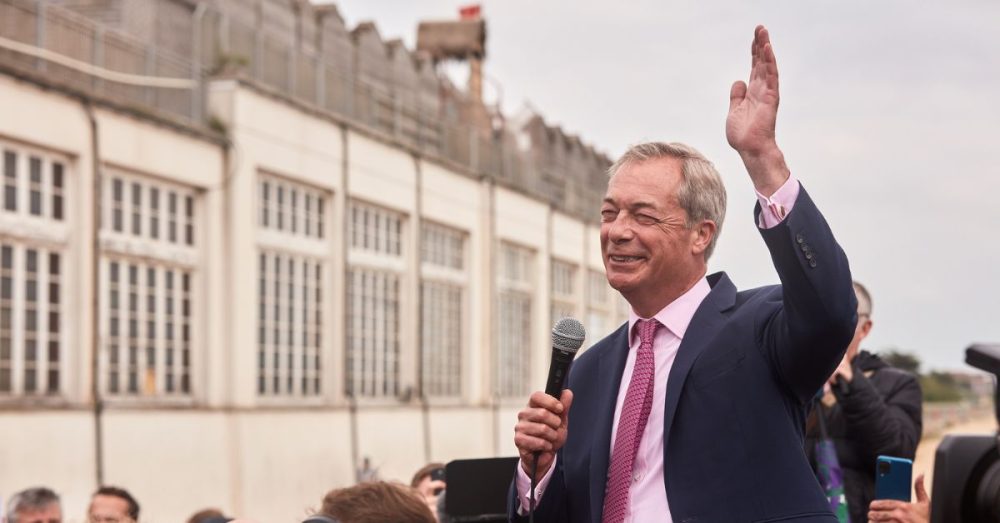While much of the mainstream media has been trumpeting the British Labour Party’s decisive victory in the country’s national elections, an underappreciated aspect of the results is the rise of Nigel Farage and his Reform UK Party.
Farage is known for his prominent role in the United Kingdom’s Brexit movement. He subsequently parlayed the victory into jumpstarting a political reform program under the Reform UK banner, emphasizing issues like healthcare reform, the need for more control over immigration, and law and order. The party has positioned itself as a populist alternative to the mainstream Conservative Party.
While voters dealt the Conservative Party a shellacking, Reform UK surpassed expectations and secured a number of seats — with Farage himself set to enter parliament for the first time.
Described as a “Trump ally” by legacy media outlets, Farage’s ascendance has some wondering if he represents the political future in the United Kingdom.
Here’s some of what Red State had to report on Farage’s victory:
The man who pushed and pulled the United Kingdom out of the European Union has emerged as the true leader of British conservatism in the July 4 elections after voters swept the Conservative Party out of power after 14 years.
“This should be the immigration election,” Nigel Farage, the leader of the Reform UK Party and a Parliamentary candidate for Clacton-on-Sea, an Essex County beach resort town halfway between Norwich and London on the English Channel, facing Holland, said in one of his final appeals to the voters.
Farage said he had no hard feelings for the migrants pouring into the country, but it had to stop.
“Most of whom do come are really great people that work hard, but our population’s risen by six million since 2010,” he said. “We need to put a freeze on migration.”
When the polls closed, the Sky News/BBC/ITV exit poll projected Labour to win 410 votes with 131 for the Tories.
As the night wore on, the actual results supplanted the projection, with the Tories doing slightly better but with Labour securing the 326 seats for the majority just before 5 a.m. Greenwich Mean Time.


